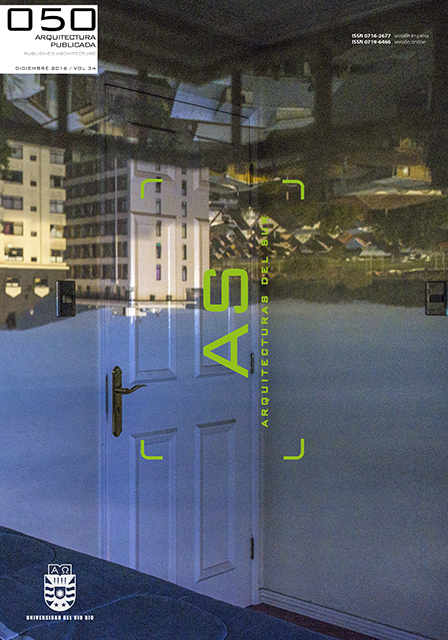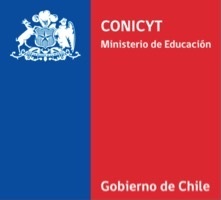Defense strategies: three recurrent themes in Niemeyer’s texts published in the magazine Módulo
DOI:
https://doi.org/10.22320/07196466.2016.34.050.06Keywords:
magazines, criticism., modern architecture, 20th century, historiography, criticismAbstract
This research deals with the texts published by Oscar Niemeyer in Módulo, a magazine edited by the architect himself, which was in circulation between 1955 and 1989. The reading of these texts revealed three recurrent the- mes: the first, present even in the first issue, has to do with the response to international criticism; the second, which initially appeared during the magazine ́s first year but gained greater notoriety after 1975, reveals a Niemeyer concerned with the legacy his work could leave for future generations of architects; and the last, evident in the last decade of the magazine, shows a change in discourse, which takes on a less didactic tone when explaining his projects and attempts to highlight his relevance, even in new contexts. The analysis of these documents and the identification of said themes demonstrate Niemeyer ́s concerns regarding his professional life and how he used the magazine to defend his work.
Downloads
References
Arquiteto por nascimento. Módulo, 1987, no 96, p. 18.
BILL, Max. O arquiteto, a arquitetura, a sociedade. Habi- tat, 1954, no 14, pp. 34-35.
CABRAL, Claudia. La revista como escudo: Módulo y Oscar Niemeyer. En: TORRENT, Horacio (ed.). Revistas de Arquitectura: Representaciones urbanas y paradigmas disciplinares. Santiago de Chile: T6 Ediciones, 2011, pp. 49-70.
COMAS, Carlos Eduardo. La revista como lanza: Habitat y Lina Bo Bardi. En: TORRENT, Horacio (ed.). Revistas de Arquitectura: Representaciones urbanas y paradigmas disciplinares. Santiago de Chile: T6 Ediciones, 2011, pp. 33-47.
COMPANHEIROS DE MÓDULO. Oscar Niemeyer 50 anos de arquitetura. Módulo, 1987, no 97, p. 19.
Crítica - Auto Crítica. Módulo, 1955, no 2, p. 66.
Criticada a arquitetura brasileira: RICA DEMAIS - dizem.
Módulo, 1955, no 1, p. 46.
GROPIUS, Walter. Um Vigoroso Movimento (1954). En: XAVIER, Alberto (ed.). Depoimento de uma geração. São Paulo: Cosac Naify, 2003, pp. 153-154.
LE CORBUSIER. Carta. Módulo, 1987, no 95, p. 1.
MIRANDA, Clara Luiza. A Crítica nas revistas de arquite- tura dos anos 50. En: SEGRE, R., V Seminário de História da Cidade e do Urbanismo. Campinas: Universidade Católica de Campinas, 2008.
NIEMEYER, Oscar. Fala Oscar. Módulo, 1955a, no 1, p. 47.
NIEMEYER, Oscar. Problemas Atuais da Arquitetura Bra-
sileira. Módulo, 1955b, no 3, p. 19.
NIEMEYER, Oscar. Contradição na Arquitetura. Módulo,
, no 31, p. 17.
NIEMEYER, Oscar. A forma na arquitetura. Rio de Janeiro: Avenir editora, 1978.
NIEMEYER, Oscar. O problema estrutural. Módulo, 1980, no 57, p. 94.
NIEMEYER, Oscar. Como se faz Arquitetura. Rio de Janeiro: Vozes, 1986.
PEREIRA, Miguel Alves. Arquitetura, texto e contexto: o discurso de Oscar Niemeyer. Brasília: Editora Universida- de de Brasília, 1997.
Report on Brazil. Architectural Review, 1954, no 694. pp. 234-250.
ROGERS, Ernesto Nathan. Pretextos para uma crítica não formalista (1954). En: XAVIER, Alberto (ed.). Depoimento de uma geração. São Paulo: Cosac Naify, 2003, pp. 166- 169.
STUCHI, Fabiana Terenzi. Revista Habitat: um olhar moderno sobre os anos 50 em São Paulo. Dissertação, FAUUSP, USP, São Paulo, 2007.
ZEIN, Ruth Verde. Da crítica alheia à teoria própria [en línea]. Arquitextos, 2012, no 151.04. [Consultado 19 diciembre 2016]. Disponible en: http://www.vitruvius. com.br/revistas/read/arquitextos/13.151/4608
Downloads
Published
How to Cite
Issue
Section
License
Copyright (c) 2016 Mario Guidoux Gonzaga

This work is licensed under a Creative Commons Attribution-ShareAlike 4.0 International License.
The content of the articles published in each issue of Arquitecturas del Sur is the sole responsibility of the authors and does not necessarily represent the opinion of University of the Bío-Bío.
The authors will maintain their copyright; however, they will guarantee the journal the right to first publication and dissemination of their work. The publication of the article in Arquitecturas del Sur will be subject to the Creative Commons International license (CC BY-SA) that allows others to adapt: remix, transform and build on the material for any purpose, even commercially; share: copy and redistribute the material in any medium or format, as long as the authorship and first publication in this journal are acknowledged by citing them correctly, and their new contributions are under a license with the same terms.














 Programa de Información Científica/Concurso Fondos de Publicación de Revistas Científicas 2018/ Proyecto Mejoramiento de Visibilidad de Revistas UBB (Código:FP180007)
Programa de Información Científica/Concurso Fondos de Publicación de Revistas Científicas 2018/ Proyecto Mejoramiento de Visibilidad de Revistas UBB (Código:FP180007) 
